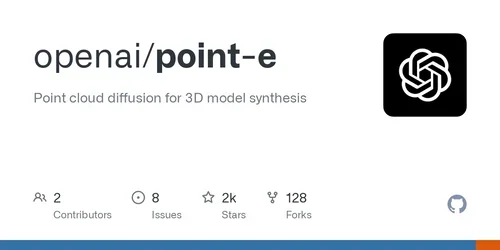Description
🖼️ Tool Name:
Point‑E
🔖 Tool Category:
AI-powered 3D point-cloud generator; fits under Generative AI & Media Creation, Engineering Design, Science & Research, and 3D Object & Avatar Generation.
✏️ What does this tool offer?
Point‑E, developed by OpenAI, is a text-to-3D system that rapidly generates 3D point clouds from natural language prompts. It utilizes a two-stage diffusion pipeline: first generating a synthetic 2D view, then producing both coarse and upsampled point clouds—typically in 1–2 minutes on a single GPU.
🔧 It includes:
Text-to-point-cloud: Generate 1,024 → 4,096-point 3D representations.
Image-to-point-cloud: Condition on real or synthetic images.
Optionally converting point clouds into mesh objects via SDF regression and marching cubes.
Open-source release on GitHub with notebooks and evaluation tools.
Community integration through tools like Voxel51’s tutorial and FiftyOne for dataset creation and visualization .
⭐ User experiences show:
High-speed generation (minutes, not hours).
Practical quality—usable for prototyping, though lower resolution than SOTA mesh models.
Hobbyist and researcher adoption via demos and GitHub engagements.
🤖 Does it include automation?
Absolutely. The pipeline is fully automated:
Prompt → synthetic view (2D) via diffusion.
Diffusion-conditioned point cloud generation (coarse + upsample).
Optional mesh conversion—all without manual design steps.
💰 Pricing Model:
Open-source & free: models and code accessible via GitHub.
Requires local GPU or cloud compute for execution.
Community-run demos and Colab notebooks available free of charge.
🧭 Access Method:
Installable library: via from GitHub repo.
Notebooks: ready examples.
Demos: community notebooks like Voxel51 for dataset workflows or Streamlit web apps.
CLI/tools: integrate with libraries like FiftyOne for visualization pipeline.
🔗 Experience Links:
https://github.com/openai/point-e
